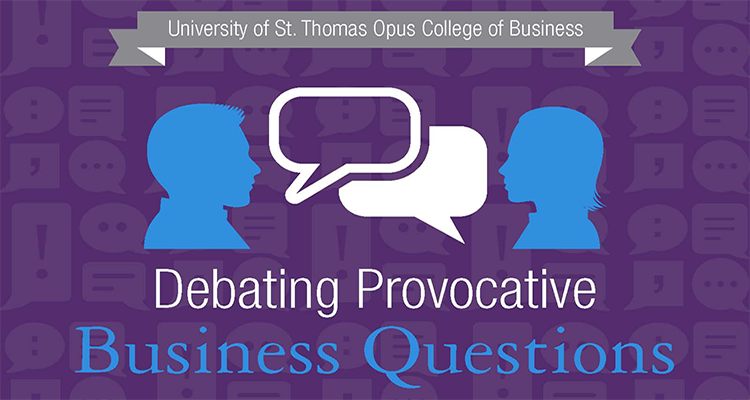Work/life balance: Is it attainable or merely a Utopian dream in America’s 24/7 work culture? A group of Minnesotans was asked to weigh in on that debatable issue recently – with unexpected results from the most frazzled, sleep-deprived and overwhelmed cohort of respondents.
Based on the punishing workplace conditions described in two recent, widely circulated articles in The New York Times – A Toxic Work World and Inside Amazon: Wrestling Big Ideas in a Bruising Workplace – you might guess at the respondents’ verdicts. But you’d probably be surprised.
In fact, respondents were surprisingly optimistic when it came to their views on being able to manage work and home responsibilities – particularly those most likely to be running on fumes: working parents. The Opus College of Business survey, which examined how Minnesotans feel about a variety of important workforce issues, found that a majority of respondents with children at home agreed it is possible to achieve work/life balance in their current job (80%) compared to total respondents (66%) and those without children (61%).
Younger respondents with higher incomes, more education and children at home all tended to agree that it is possible to achieve a work/life balance in their current job, including 75 percent of Millennials and 73 percent of Gen Xers.

The survey showed a positive correlation between respondents’ education levels and their optimism about achieving work/life balance. Of the college graduates polled, 73 percent agreed work/life balance is possible in their current job compared to 60 percent of respondents who completed high school or less, and 58 percent who did not complete college.
While striving for good quality of life outside of work can come at a career cost, 62 percent of Millennials and 59 percent of Gen Xers reported that they were able to balance their home and work life without hindering their career progression. Just over half (55%) of total respondents said they had been able to achieve balance without affecting their career trajectory.
Forward-thinking organizations recognize that human capital is their greatest competitive advantage and they design their policies accordingly, said Teresa Rothausen, Ph.D., professor of management and Susan E. Heckler Endowed Chair in Business Administration at the University of St. Thomas Opus College of Business.
“Across the board, we find that employees consider two elements of work/life balance most vital: the ability to care for family members who are vulnerable, ill, disabled or aging and some flexibility in how, when and where they will perform their work,” Rothausen said. “A vast number of studies tell us that companies who support employees in these ways reap benefits that include higher rates of engagement and retention, and reduced stress and burnout.”

Dr. Rothausen added that companies with a reputation for supporting employees’ healthy lifestyles often see a marked increase in applications for open positions, allowing them to be more selective in their hiring. “People are motivated to support an organization that supports them,” she said.
Indeed, the majority of those polled said that a balanced work and home life would play into future job decisions: 91 percent of college graduates and 87 percent of those who had completed some graduate work answered that work/life balance would impact their evaluation of a job offer – significantly more than those who completed high school or less (71%).
Minnesota and the Twin Cities consistently rank near the top of national polls measuring quality of life, and work/life balance frequently figures into that equation. Many of the state’s largest employers have been recognized for cultivating a healthy work/life balance.
More than 1,000 adults ages 18 or older completed the Opus College of Business survey by ORC in August 2015. The College conducted the survey as part of its ongoing Find Your Answer campaign. Intended to encourage thought-provoking discussions and debates, the campaign reflects the school’s examined and thoughtful approach to business leadership, business ethics, workplace diversity, entrepreneurship and human potential. Students, business leaders and others are invited to join the conversation and share their views at www.stthomas.edu/business/find-your-answer/.







